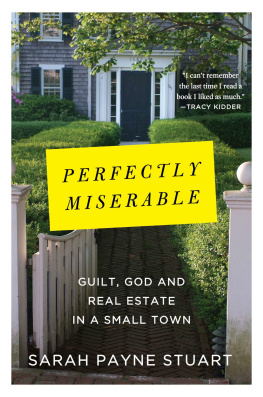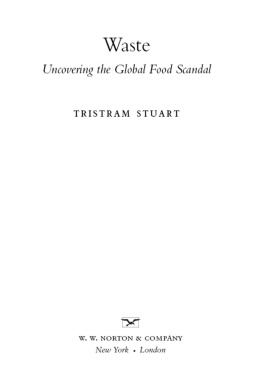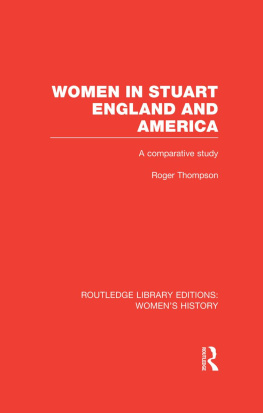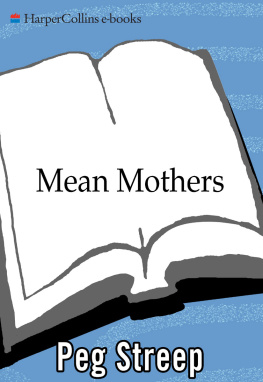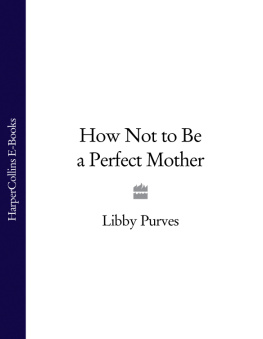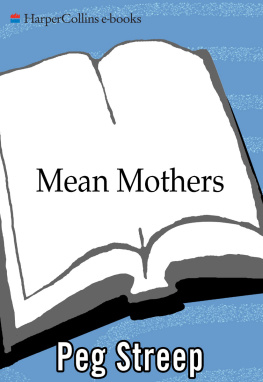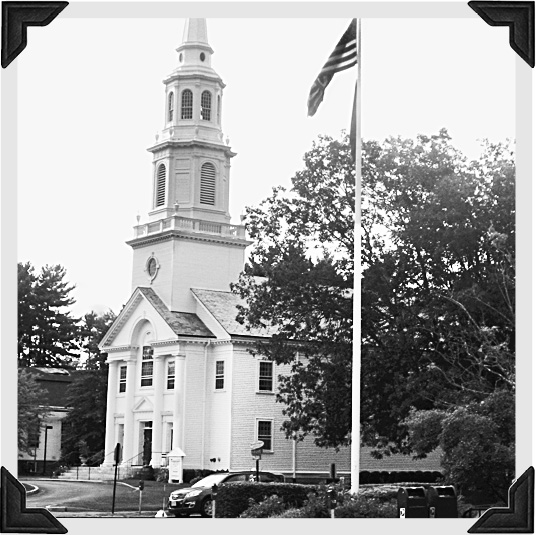ALSO BY SARAH PAYNE STUART
FICTION
Men in Trouble
The Year Roger Wasnt Well
NONFICTION
My First Cousin Once Removed: Money, Madness, and the Family of Robert Lowell

RIVERHEAD BOOKS
Published by the Penguin Group
Penguin Group (USA) LLC
375 Hudson Street
New York, New York 10014

USA Canada UK Ireland Australia New Zealand India South Africa China
penguin.com
A Penguin Random House Company
Copyright 2014 by Sarah Payne Stuart
Penguin supports copyright. Copyright fuels creativity, encourages diverse voices, promotes free speech, and creates a vibrant culture. Thank you for buying an authorized edition of this book and for complying with copyright laws by not reproducing, scanning, or distributing any part of it in any form without permission. You are supporting writers and allowing Penguin to continue to publish books for every reader.
Portions of this book appeared, in a somewhat different form, in The New Yorker.
Library of Congress Cataloging-in-Publication Data
Stuart, Sarah Payne.
Perfectly miserable : guilt, God and real estate in a small town / Sarah Payne Stuart.
p. cm.
ISBN 978-1-101-62674-0
1. Stuart, Sarah Payne. 2. Authors, American20th centuryBiography. 3. Authors, American21st centuryBiography. I. Title.
PS3569.T826Z46 2014 2013048095
818'.5403dc23
[B]
Penguin is committed to publishing works of quality and integrity. In that spirit, we are proud to offer this book to our readers; however, the story, the experiences, and the words are the authors alone.
Version_1
TO HUNTER, TEDDY, AND EMILY.
AND TO CHARLIE
The names and some distinguishing characteristics of private individuals have been changed.
CHAPTER ONE
FLEEING MARMEE
Concord, Massachusetts: a Protestant Disneyland.
I F YOU COME FROM N EW E NGLAND , the creeping certainty that you are a bad person is always with you. It wakes you with a start at four a.m. with the remembrance of a thank-you note forever unwritten. It asks you to please explain yourself when you pick up your dry cleaning on ONE DAY SPECIAL three weeks late. It darts out through the dental hygienists reprimand that you are the captain of your own ship. Whoever and wherever you are, if you come from this stern mother of our country, a spark of your innate unworthiness is embedded in your soul.
But then, there are those brief, shining moments when you dont hate yourself. Joy is everywhere. We see it in the old houses and historic town centers that deepen our landscape with a past whose beauty surmounts its burdens; we see it in the endless meadowlands and fields and woods running wild under our careful conservation. Yes, we are sinners in the hands of an angry God; still, looking around us, we cant help but believe that someone up there might like us just a little bit more than He likes everyone else. We are like our Puritan forefathers who loathed themselves on the one hand, and thought they were above everyone else on the other. We love our Puritan ancestors, as most of our friends are sick of hearingthough sometimes we wish theyd left us a little more money.
New England can be as stingy with its welcome as it is stingy with its weather. But catch New England on a good day and there is a cozy uplift to the scene that takes the breath away. The sight of the hardy, high-spirited children, released from school on a perfect September afternoon to run through the antique towns, will draw even the most confirmed West Coaster to the window of a local realtor. And yet, it should never be forgotten: New England is an unforgiving place. Like the adored but disapproving mothers who populate it, it grips its children in the vise of its impossible expectations.
My hometown was the cradle of it all. Concord, Massachusetts, settled by Puritans in 1635, is Americas oldest continuously inhabited inland town, an official Facebook page will inform you, and the fact of this slightly qualified boast puts resolution in its residents hearts today. Here, for the glory of God, rich English Puritans slept in mud bunkers penetrated by heavy rains, and sang psalms of thanksgiving, even as they cut their flat Indian bread into thinner and thinner slices. The rivers overflowed the pastures, the cattle died, the horses and sheep couldnt live on the land, and the wolves ate the pigs. But did the Puritans complain? No, they bottled it up, making griping a punishable offense.
Here, Patriot mothers stored gunpowder in their chambers and sent their sons to war so they could have taxation with representation. Here the great Emerson conceived a religion so lofty nobody has ever been able to explain it, yet lagged for fifteen years behind his wife in the antislavery cause. Here, for his whole life, Henry Thoreau lived, above it all perhaps, but still with his mother, anddespite his independent spiritunable to live anywhere else.
Here also Nathaniel Hawthorne lived, next door to Louisa May Alcott and her pontificating parents: the useless Bronson, lounging on his front lawn with an apple, hoping to tempt someone (anyone) into conversation; the guilt-tripping Marmee, overburdened and not keeping that fact to herself, slamming the door of Orchard House as she bustled in and out with moralistic platitudes and baskets of good deeds. Marmee who made her daughters grieve each selfish thought; Marmee who couldnt resist dragging a quiet moment down with a lecture; Marmee who reprimanded the rich, even as they gave to the poor, on why they didnt give more. Hawthorne avoided Mrs. Alcott at any cost, slipping through the woods behind his house seeking alternate routes to town; his wife, Sophia, had looked both ways before stepping out, fleeing at the sight of Marmee.
Yet it was Marmee, the most disapproving woman of all time, who inspired the most popular girls book of all time, Little Women. And it was her daughter, Louisa May, who, though not perhaps the most profound writer of the revered Concord Authors, was for me the most affecting. Not that I wouldnt have happily married the wise and handsome Emerson, at any age youd care to pick (if only for his house); not that Hawthornes Puritan guilt doesnt make me feel at home; not that Thoreaus quest to regain his childhood isnt mine. But it was Louisa whod been a girl in Concord, scrabbling for money with three siblings and mental illness in the house; Louisa, whose wishful, saccharine version of life with Marmee was far more of a utopia to me than Thoreaus no-frills cabin in the woods.
Even now I see Marmee, dusty and patched, falling exhausted in her chair by the warm but shabby hearth, her little women scurrying to plump a cushion. This very day I cannot turn to the loving group around Marmee in the frontispiece of Little Women without suffering a pang of longing. Even when I know there was no servant Hannah in the kitchen, but Louisa herself, scrubbing and cooking, when she wasnt churning out moral pap for childrenall to take care of Marmee. For what girl or woman among us does not long for a nod from Marmee, to be assured that she is not as bad as she knows herself to be?

